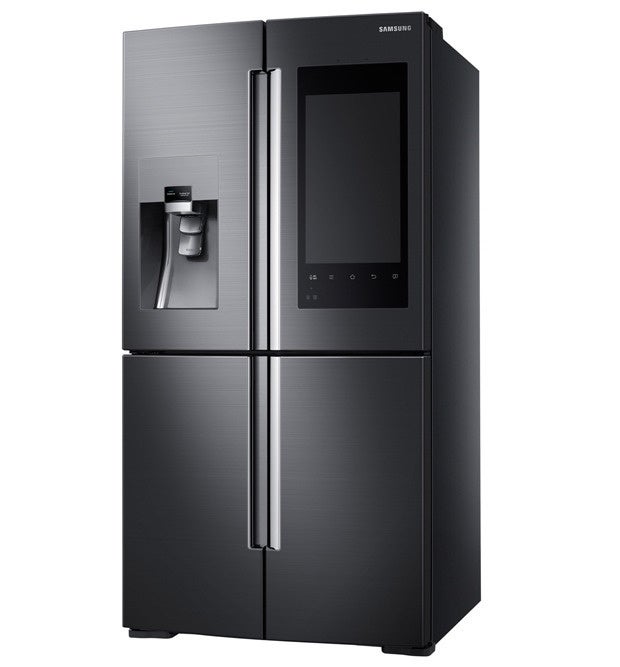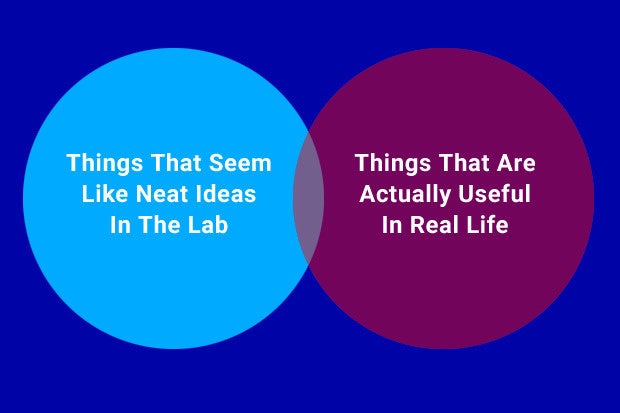The 'Smart'-Everything Trend has Officially Turned Stupid
From ComputerWorld:
There's a difference between making something
connected because it's possible and making something connected because
it's practical.
Well, gang, it's finally happened: We've made it past the point of no
return. The notion of hardware being "smart" has, as tech-lovers love to
say, officially jumped the shark.
It's been headed that way for some time now, of course. But while we've
been watching it wobble with random goofy gadgets for a while, this
year's CES convention in Vegas has taken the balance and slammed it firmly downward in the direction of silliness.
The main culprit? Samsung's Family Hub Refrigerator -- a "smart" fridge
(oh yes) that comes with three cameras (uh huh) and a built-in
Internet-connected tablet (yup). It'll cost $5,000 (no joke) and will be
available to anyone with lots of expendable income (cha-ching) and very
little good judgment (durrr) sometime this spring.

The concept is novel, to be sure, but it's also a new extreme of making
something connected for the mere sake of making it connected -- and thus
creating a "smart" appliance that's more gimmicky than practical and
spattered with troubling asterisks.
Let's examine this a bit more closely, shall we? The selling point of
the Family Hub Fridge is that it'll make your kitchen modern and
convenient. Sounds sublime, right? In theory, sure. But the problem, as I pointed out on Twitter
earlier this week, is that there's a difference between something
sounding neat on paper and something actually being useful in real life.
And it seems safe to say Samsung's "smart" fridge falls firmly into the
former category.
Oh, JR, you're just being surly!
Maybe. I do have such tendencies, after all. But initial "neato!" factor
aside, this concept really does present some serious issues.
So get into them already, then, you rambling goat-stalker!
I would, if you'd quit interrupting already. (And keep my goat-adoring
habits out of this, buddy. How'd you know about that, anyway?!)
The core issue with Samsung's "smart" fridge is that it's integrating
hardware and software with short shelf-lives into an expensive appliance
that should last a solid 13 to 17 years (according to a variety of news articles about refrigerators, which I actually looked up while mulling this subject -- the things I do for you!).
On the hardware front, think about how different a tablet today is from
one you would have bought five years ago. Now think about the fact that
the tablet in the Family Hub Refrigerator is stuck there eternally, even
as standards and expectations invariably evolve.
And on the software front, think about how much trouble Samsung has keeping its phones and tablets up to date
with new releases over time. Do you honestly think the company's going
to be sending timely OS upgrades and security patches to your
refrigerator -- a product that's sure to sell in far lower numbers than
its already-update-challenged smartphones and tablets -- two years from
now? What about six years from now? Or 10?
Security implications aside -- and that's no small cookie to consider
-- outdated software could result in key features failing to work as
interfaces evolve over time. It's a struggle owners of previous (albeit
less ambitious and less high-profile) Samsung "smart" fridges have already complained about, and it seems all but inevitable at the rate such areas progress.
Uh, so what exactly are you saying here?
Here's what it boils down to: This sort of "smart" appliance isn't being
created because it's useful or practical for families. It's being
created merely because it's possible -- and potentially
profitable (especially if manufacturers manage to convince shoppers to
"upgrade" and get new models more frequently than they do now).
The benefit here is almost entirely for the manufacturer, in other words, and it comes at the cost of the consumer....MORE

